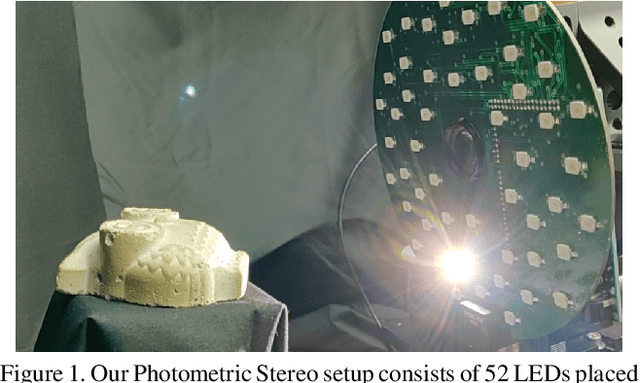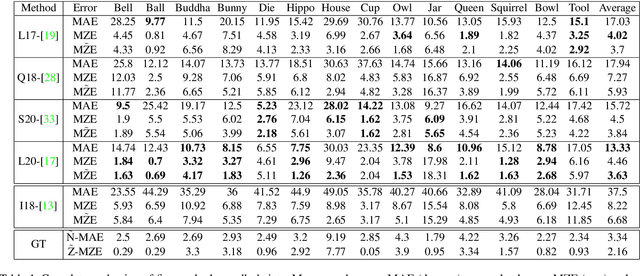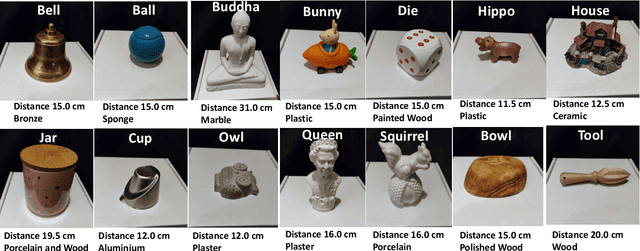LUCES: A Dataset for Near-Field Point Light Source Photometric Stereo
Paper and Code
Apr 27, 2021



Three-dimensional reconstruction of objects from shading information is a challenging task in computer vision. As most of the approaches facing the Photometric Stereo problem use simplified far-field assumptions, real-world scenarios have essentially more complex physical effects that need to be handled for accurately reconstructing the 3D shape. An increasing number of methods have been proposed to address the problem when point light sources are assumed to be nearby the target object. The proximity of the light sources complicates the modeling of the image formation as the light behaviour requires non-linear parameterisation to describe its propagation and attenuation. To understand the capability of the approaches dealing with this near-field scenario, the literature till now has used synthetically rendered photometric images or minimal and very customised real-world data. In order to fill the gap in evaluating near-field photometric stereo methods, we introduce LUCES the first real-world 'dataset for near-fieLd point light soUrCe photomEtric Stereo' of 14 objects of a varying of materials. A device counting 52 LEDs has been designed to lit each object positioned 10 to 30 centimeters away from the camera. Together with the raw images, in order to evaluate the 3D reconstructions, the dataset includes both normal and depth maps for comparing different features of the retrieved 3D geometry. Furthermore, we evaluate the performance of the latest near-field Photometric Stereo algorithms on the proposed dataset to assess the SOTA method with respect to actual close range effects and object materials.
 Add to Chrome
Add to Chrome Add to Firefox
Add to Firefox Add to Edge
Add to Edge